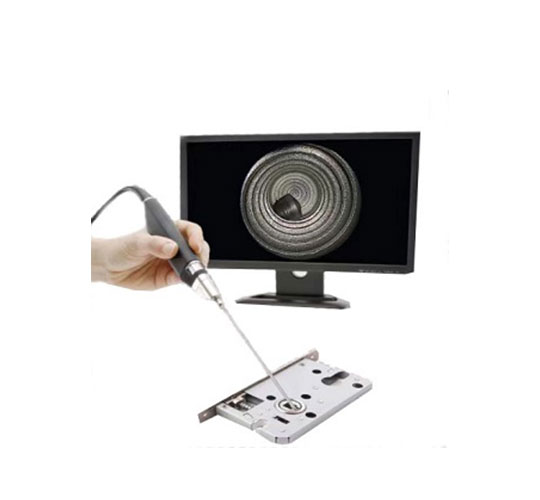Videoscopio industriales have emerged as a revolutionary tool for non-destructive inspections in a wide range of industries. With their advanced imaging capabilities and flexible design, videoscopes enable professionals to perform detailed visual inspections in challenging environments. This article explores the applications of industrial videoscopes across different industries, highlighting their benefits and contributions to enhanced inspection practices.
Oil and Gas Industry:
In the oil and gas industry, industrial videoscopes have become an invaluable asset for inspecting pipelines, storage tanks, e altre infrastrutture critiche. These videoscopes offer high-resolution imaging and flexible insertion capabilities, allowing inspectors to navigate through complex systems and detect potential defects, corrosione, or blockages. Videoscope inspections help identify maintenance needs, prevent leaks, and ensure compliance with safety regulations, ultimately reducing downtime and improving operational efficiency.
Aviation Industry:
The aviation industry heavily relies on industrial videoscopes for aircraft inspections, particularly in areas that are difficult to access. Videoscopes enable inspectors to visually examine aircraft engines, turbine blades, fuel lines, and other components without the need for disassembly. By identifying any signs of wear, danno, or foreign object debris, videoscope inspections contribute to enhanced maintenance practices, increased safety, and improved aircraft performance.
Automotive Industry:
Industrial videoscopes play a crucial role in the automotive industry, facilitating inspections of engines, sistemi di alimentazione, exhaust systems, and other critical automotive components. These videoscopes enable technicians to assess the condition of internal parts, identify blockages, detect leaks, and ensure compliance with quality standards. By detecting potential issues early on, videoscope inspections aid in preventing breakdowns, improving reliability, and optimizing vehicle performance.
Manufacturing Industry:
Nel settore manifatturiero, industrial videoscopes are utilized for quality control and inspection purposes. Videoscopes enable inspectors to assess the integrity of welds, examine internal structures of machinery, and inspect hard-to-reach areas for defects or irregularities. By providing real-time visual feedback, videoscope inspections help manufacturers ensure product quality, minimize defects, and enhance overall production efficiency.
Infrastructure and Construction Industry:
Industrial videoscopes are increasingly used in the infrastructure and construction industry to assess the condition of buildings, bridges, tunnels, and other structures. Inspectors can examine hard-to-reach areas, such as confined spaces or elevated structures, for signs of deterioration, crepe, or structural weaknesses. Videoscope inspections contribute to proactive maintenance planning, early detection of potential hazards, and the preservation of infrastructure integrity.
Conclusione:
Industrial videoscopes have revolutionized inspection practices in various industries, enabling professionals to conduct non-destructive examinations with precision and efficiency. From the oil and gas industry to aviation, automotive, manufacturing, and infrastructure sectors, videoscope inspections have proven instrumental in ensuring safety, enhancing maintenance practices, and improving overall operational performance. As technology advances further, industrial videoscopes will continue to evolve, providing even more sophisticated imaging capabilities and expanding their applications in diverse industrial sectors.


